Changing Provider Behavior to Improve Quality of Care in Plateau State, Nigeria
Sumla Josephine Linus is a nurse at the Primary Health Center in Kabong, Plateau State. She has worked at this facility for almost 11 years, providing reproductive, maternal, newborn, and child health (MNCH) services. Despite her vast experience, she did not always follow Ministry of Health guidance and was in the habit of treating all fevers as malaria and administering antimalarial drugs without testing.
Breakthrough ACTION-Nigeria worked with over 10,000 service providers like Sulma to understand their attitudes towards service delivery and standards of care. Through training and cluster meetings with other providers, she learned fevers do not always indicate malaria, so patients should be tested first and treated only if positive.
“We used to treat all fevers as malaria. However, after attending the Officer-in-Charge cluster training organized by Breakthrough ACTION-Nigeria, we learned that not all fevers are caused by malaria. We were taught to test every fever case, and if the test is positive for malaria, we should treat it according to age (child or adult).”
— Sumla Josephine Linus, Primary Health Center in Kabong, Jos North Local Government Area, Plateau State
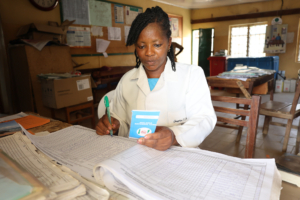
Sumla Josephine Linus, a nurse at a primary health center in Kabong, Plateau State, Nigeria. Photo by: Edoziem Valentine, Breakthrough ACTION-Nigeria
The Primary Health Centre in Kabong, like many other primary health centers in Nigeria, is outfitted to offer basic medical services, such as antenatal care (ANC) and childbirth services. In contrast to most health care establishments, clients often declined to give birth in this facility even if they attended ANC there. One common complaint was that the health providers were unkind to them.
Breakthrough ACTION-Nigeria embedded empathy and interpersonal communication and counseling skills training into its cluster meetings. Through this training, Sumla learned treating clients with dignity and respect would help them trust her during childbirth. She took up the challenge to improve how she delivered services to women at Kabong. Spurred by the lessons she engaged with during training and cluster meetings, she conversed with clients, encouraging them to share their concerns and reservations about giving birth in the facility.
“Before the training by Breakthrough ACTION-Nigeria, we used to feel offended when a pregnant woman refused to take the [antimalarial medicine] administered to her on her visit. In some cases, we shouted at them to take it, which made some pregnant women walk away from the clinic because of our attitude. All these have changed following the training we received, as we were taught how to show empathy towards our clients by explaining the benefits of the drugs to them. We no longer face resistance as we are more friendly, and pregnant women better understand the importance of the drugs.”
— Sumla Josephine Linus, Primary Health Center, Kabong, Jos North LGA, Plateau State.
Through training and cluster meetings, Sumla and her fellow health care providers also came to embrace government guidance for intermittent preventive treatment during pregnancy (IPTp) with sulfadoxine pyrimethamine (SP) and other malaria treatment among pregnant women. When pregnant women present with a fever confirmed to be malaria after testing, Sulma and her fellow health care providers, whom she also trained, now treat them with artemisinin-based combination therapies, the recommended practice. In the past, they treated with quinine and artemether, which they learned was incorrect during the cluster meeting training.
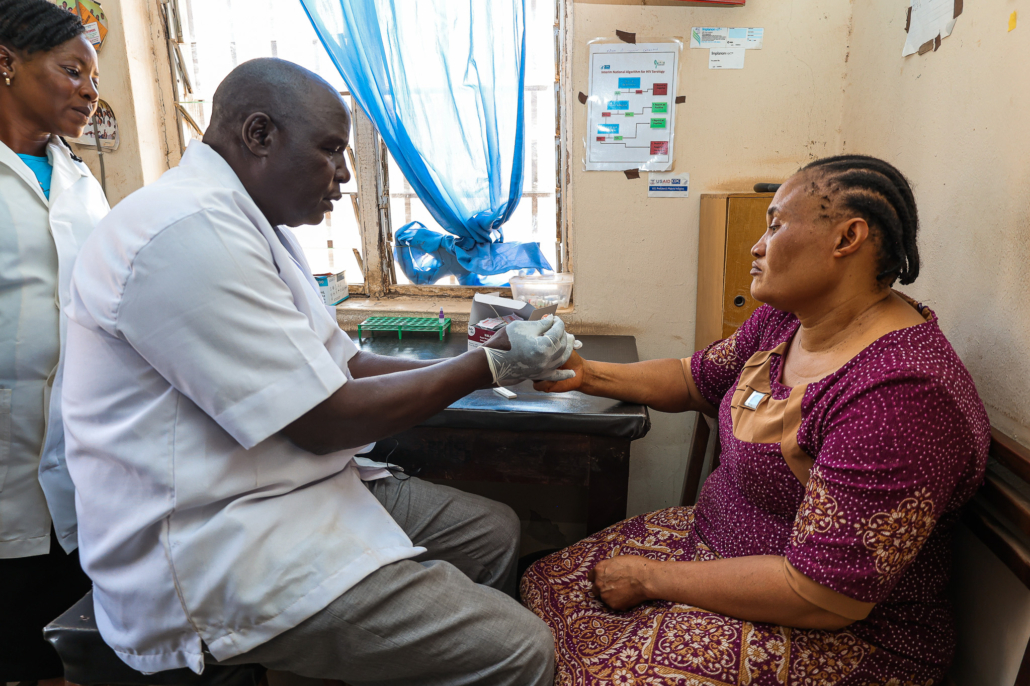
Sumla watches as her officer-in-charge tests a community member for fever. Photo by: Edoziem Valentine, Breakthrough ACTION
“When pregnant women came for ANC, we used to give them IPTp drugs (SP) to take home, but many complained of side effects and reluctance to take them without food. After the malaria-in-pregnancy office-in-charge cluster training organized by Breakthrough ACTION-Nigeria, we learned that the drug has no side effects and can be taken even on an empty stomach,” said Sumla. “Also, some pregnant women are likely not to take the medication as some find it irritating. So we were taught not to dispense the drugs to be taken home but to adopt direct observation therapy, where they take the drugs in our presence at the clinic.” She notes the women’s uptake of the medicine to prevent malaria has improved: “Even though some still fear taking SP on an empty stomach, their fears have been laid to rest as no one has reported any side effects to date.”
Learn more about how Breakthrough ACTION improved provider behavior in Nigeria.
Written by: Edoziem Valentine, Program Officer II, Knowledge Management and Documentation, Breakthrough ACTION-Nigeria

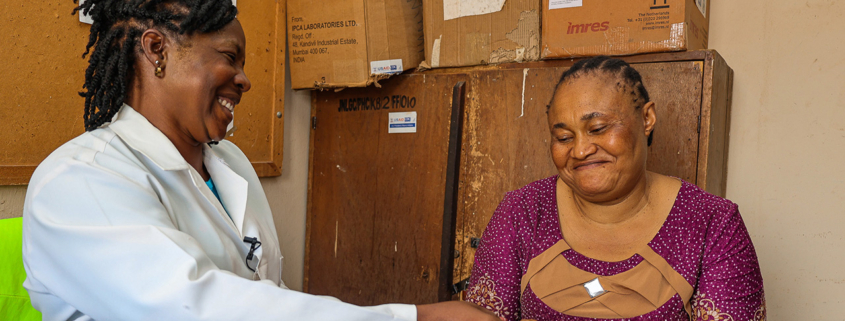 Edoziem Valentine/Breakthrough ACTION-Nigeria
Edoziem Valentine/Breakthrough ACTION-Nigeria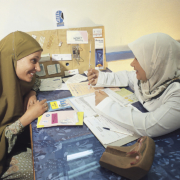 Center for Communication Programs/Photoshare
Center for Communication Programs/Photoshare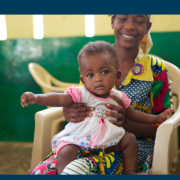 Sara Holbak/VectorWorks/Photoshare
Sara Holbak/VectorWorks/Photoshare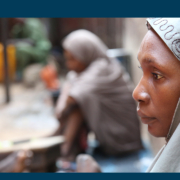
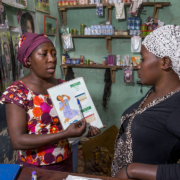 Jonathan Torgovnik/Getty Images/Images of Empowerment
Jonathan Torgovnik/Getty Images/Images of Empowerment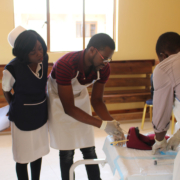
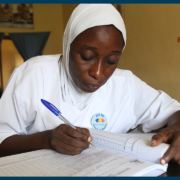 © 2012 CCP/NURHI 2, Courtesy of Photoshare
© 2012 CCP/NURHI 2, Courtesy of Photoshare